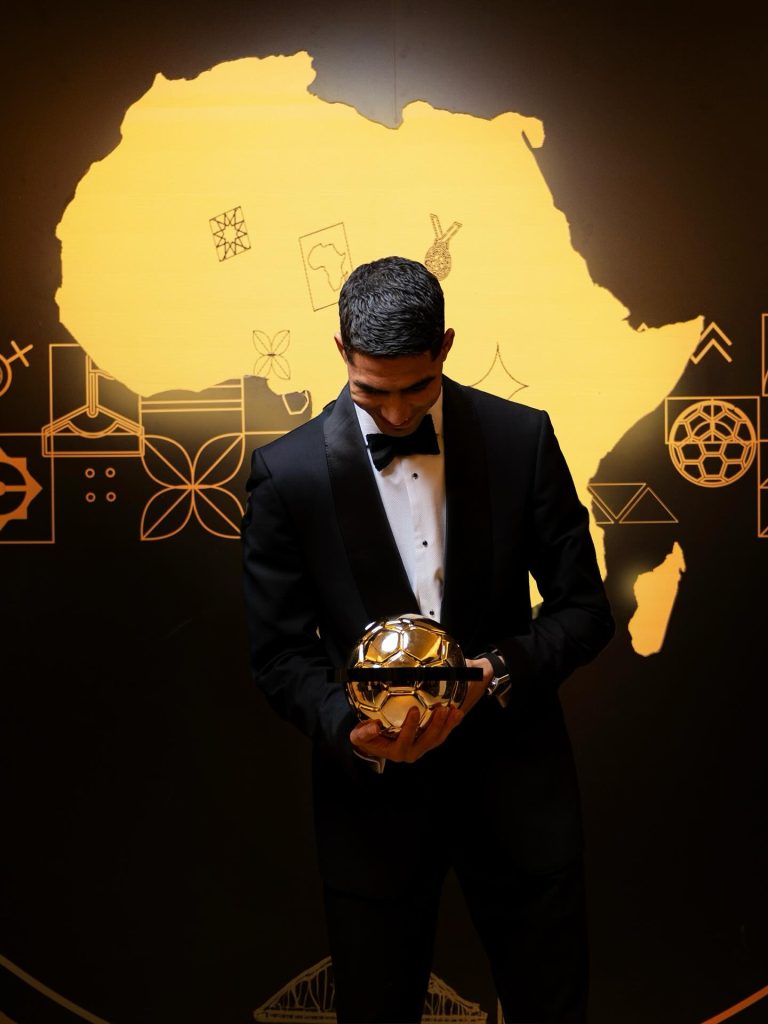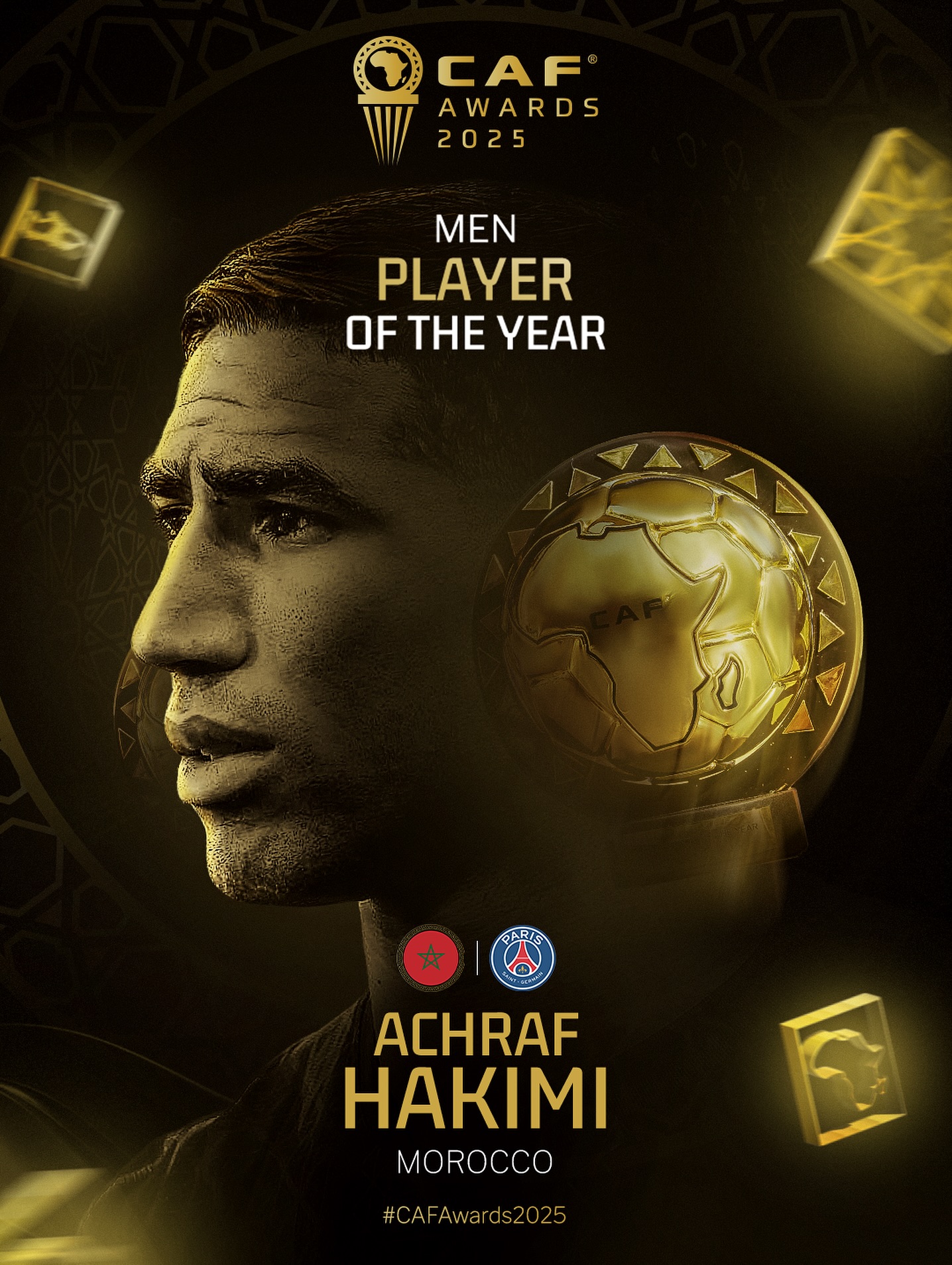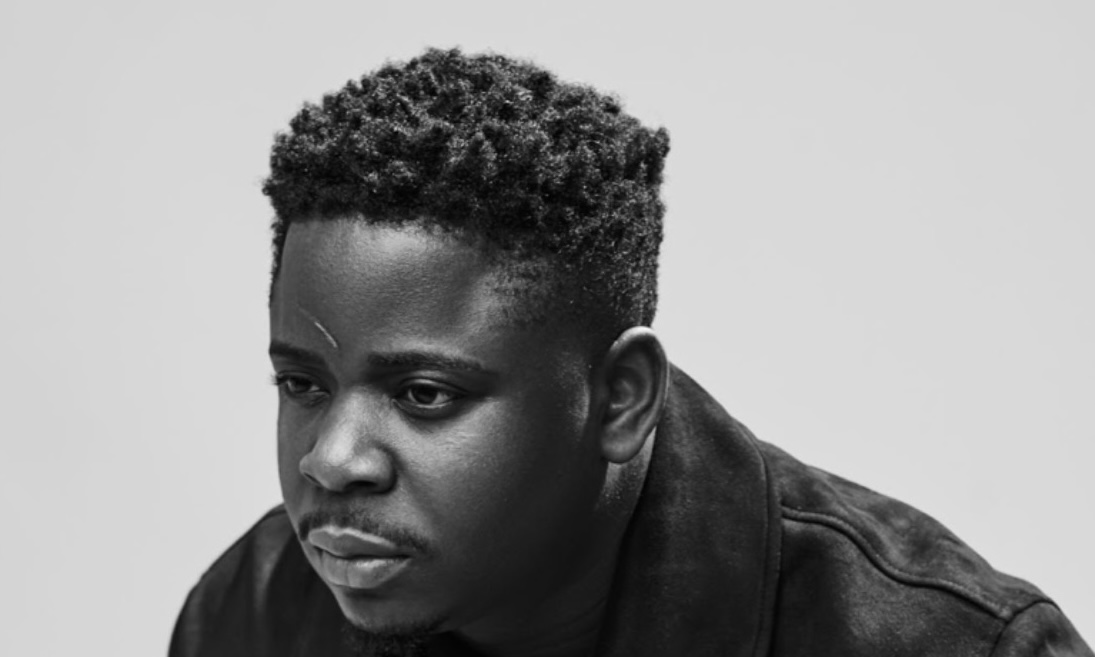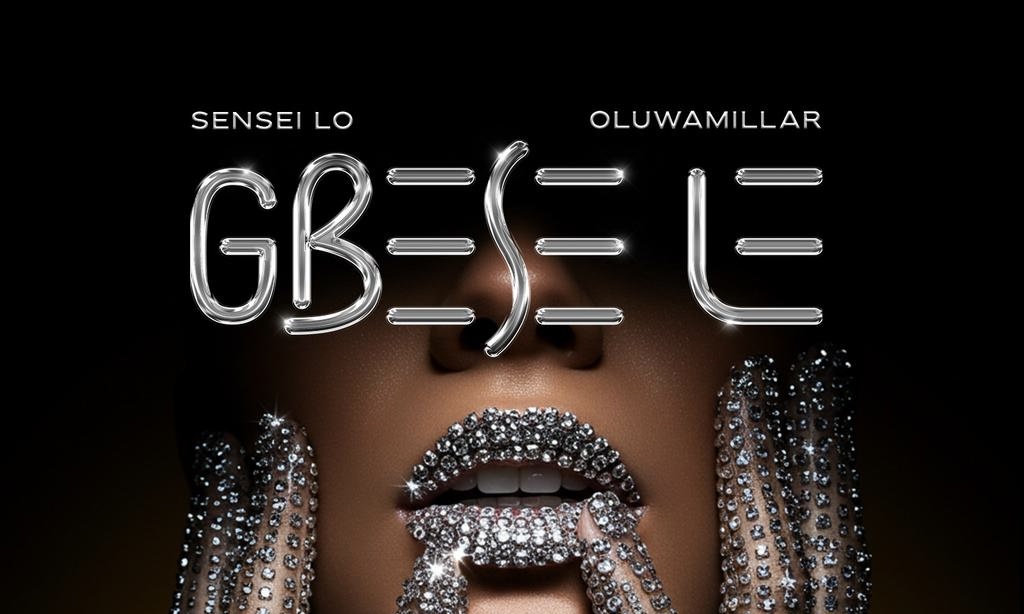Paris Saint-Germain defender Achraf Hakimi has been named the 2025 African Footballer of the Year at the CAF Awards, finishing ahead of Egyptian star Mohamed Salah and Nigerian striker Victor Osimhen in a fiercely competitive race. The announcement was made at the prestigious CAF Awards ceremony in Rabat, which celebrates the best of African football across both men’s and women’s competitions.
At 27, Hakimi made history by becoming the first defender in more than five decades to claim the award, breaking a long-standing trend of midfielders and forwards dominating the accolade. His recognition reflects not only his defensive abilities but also his versatility and influence in attack, particularly from the full-back position. Hakimi’s performances in 2025 for both club and country have been exceptional, earning him widespread praise from fans, peers, and football analysts.

A Stellar Year for Club and Country
Hakimi enjoyed a trophy-laden 2025 season with Paris Saint-Germain, helping the club secure multiple major honors, including the Champions League, Ligue 1, Coupe de France, and the UEFA Super Cup. His consistency, work rate, and ability to contribute goals and assists from defense made him a standout performer throughout the season. Beyond his club achievements, Hakimi’s role with the Morocco national team further cemented his reputation as one of Africa’s top footballers.
For Morocco, this award is particularly significant as Hakimi becomes the first Moroccan to win the CAF African Player of the Year since Mustapha Hadji in 1998, marking a historic moment for Moroccan football. In his acceptance speech, Hakimi dedicated the award to his family, teammates, and the African youth aspiring to reach professional football, describing the accolade as “a proud moment” in his career.
The Competition
Finishing second was Mohamed Salah of Egypt, who continues to impress at Liverpool with his goal-scoring prowess and leadership on the field. Nigerian striker Victor Osimhen came in third, following a strong season with Galatasaray, during which he performed consistently both domestically and in European competitions. The top three reflected a blend of attacking talent and defensive mastery, highlighting the diverse strengths of African footballers in 2025.
Hakimi’s win also signals a shift in recent trends. Nigerian players have dominated the award in recent years, with Osimhen winning in 2023 and another Nigerian, Ademola Lookman, taking the honor in 2024. Hakimi’s recognition showcases the rising impact of Moroccan footballers on the continental and global stage.

Legacy and Impact
By winning this award, Hakimi not only cements his status as one of Africa’s most complete and impactful players but also sets a benchmark for defenders aspiring to gain recognition in a field traditionally dominated by forwards and midfielders. His achievements this year reflect both individual brilliance and the growing quality of African football on the international stage.
Hakimi’s success will inspire a new generation of players across the continent, particularly defenders, demonstrating that excellence in any position can be rewarded at the highest level. As he continues to excel for PSG and Morocco, expectations will remain high, but his 2025 CAF African Player of the Year award firmly establishes him among the elite in African football history.





